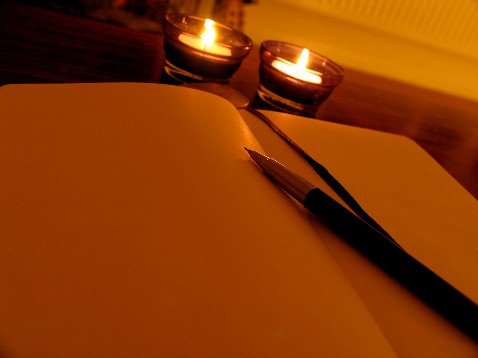Blank stares, crickets and tumbleweeds
/Recently a friend of mine posted news announcing her third pregnancy on that social media site I sometimes wonder why I joined. It was a witty, read-between-the-lines kind of announcement that is commonplace in the land of non-baby loss folk. It is not announcement any of us who have ever had to make the other, darker kind of pregnancy announcement (The baby died. I’m not pregnant anymore) are apt to make anymore for a subsequent pregnancy. With my daughter I did not clue anyone into the fact that I was pregnant until I was about 18 weeks along. There was no formal announcement I just sort of stopped denying what people already had suspected for awhile. I waited that long not because I was afraid that she was going to die like her brother, although in fact I was pretty sure that was exactly what was going to happen. Rather it was because I did not have the emotional capacity to deal with the proclamations of “This time everything is going to be fine,” or “Try not to worry, it isn’t good for the baby,” by well-meaning people. Turns out I got them anyway so it ended up not really accomplishing anything.
Had George been born with a healthy heart and not three months early he would roughly be the same age as that of my newly thrice-pregnant friend’s eldest child. As much as I would love to say that after three years of navigating the world of baby-loss I’ve risen above comparing my life to others I can’t. It is just not possible for me to look at this friend’s life and not draw comparisons to my own. She has a three year old doing those things that three-year olds tend to do. I have a baby; dead for three years, not doing those things three year olds tend to do. She has a second baby and a third on the way. I am struggling to get pregnant and stay that way long enough to bring home a second living baby. I think about her and imagine that my life could have looked very similar to hers if only fate had favored me in the same way it had favored her. I think about her and envy the relative confidence she likely possess that her current pregnancy will have the same result as her previous two did. I don’t have any confidence that any future pregnancy I may or may not have will result in a living baby.
A year ago I was in a place where her announcement wouldn’t have been much more than a tiny blip on my radar. Back then it was fairly easy to have a conversation about pregnancy without white knuckling through the entire thing. I had also mostly stopped mentally reprimanding pregnant women for complaining about trivial things like swollen ankles and nighttime trips to the bathroom. If a friend wanted to tell me about her birth plan I was mostly fine with it. Sure! Let's do it! Let's talk about playlists and birthing balls and the evils of medical intervention. I was a champion! I was a fortress! I was a pillar of support!
Two miscarriages later and I’m not feeling so enthusiastic about being a champion or a fortress or a pillar of support anymore. All I’ve been able to muster in words of encouragement for my friend on her most recent pregnancy is a simple “congrats” to add to the multitude of other congratulatory responses she’s received. I wish her the best, I really do, I just don’t want to talk about or otherwise be around it, that’s all. So should she ever want to talk to me about birth plans and swollen ankles and nighttime trips to the bathroom, for now it’s going to be nothing but blank stares, crickets and tumbleweeds.
How do you feel about your friends' pregnancies? Has your opinion about thier pregnancies and/or your comfort level with them changed over time? Do you feel guilty about the way they make you feel? Have you been made to feel guilty about the way they make you feel?



